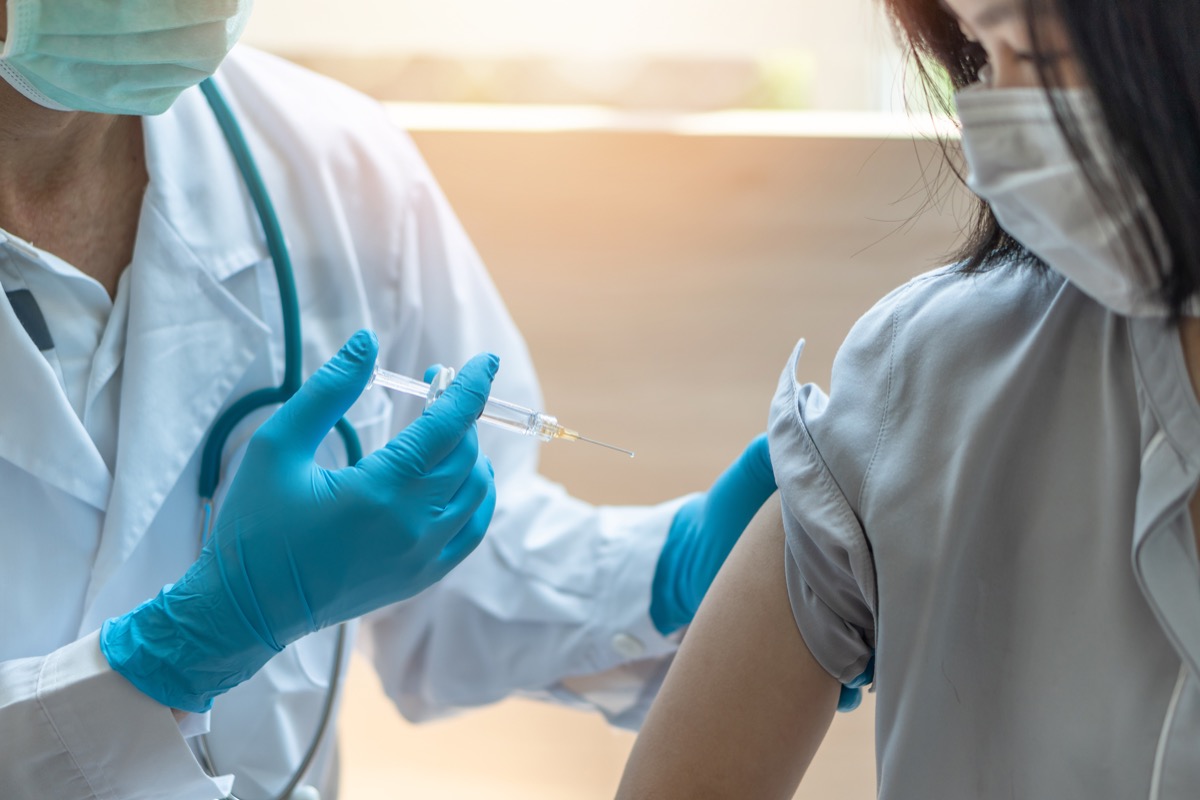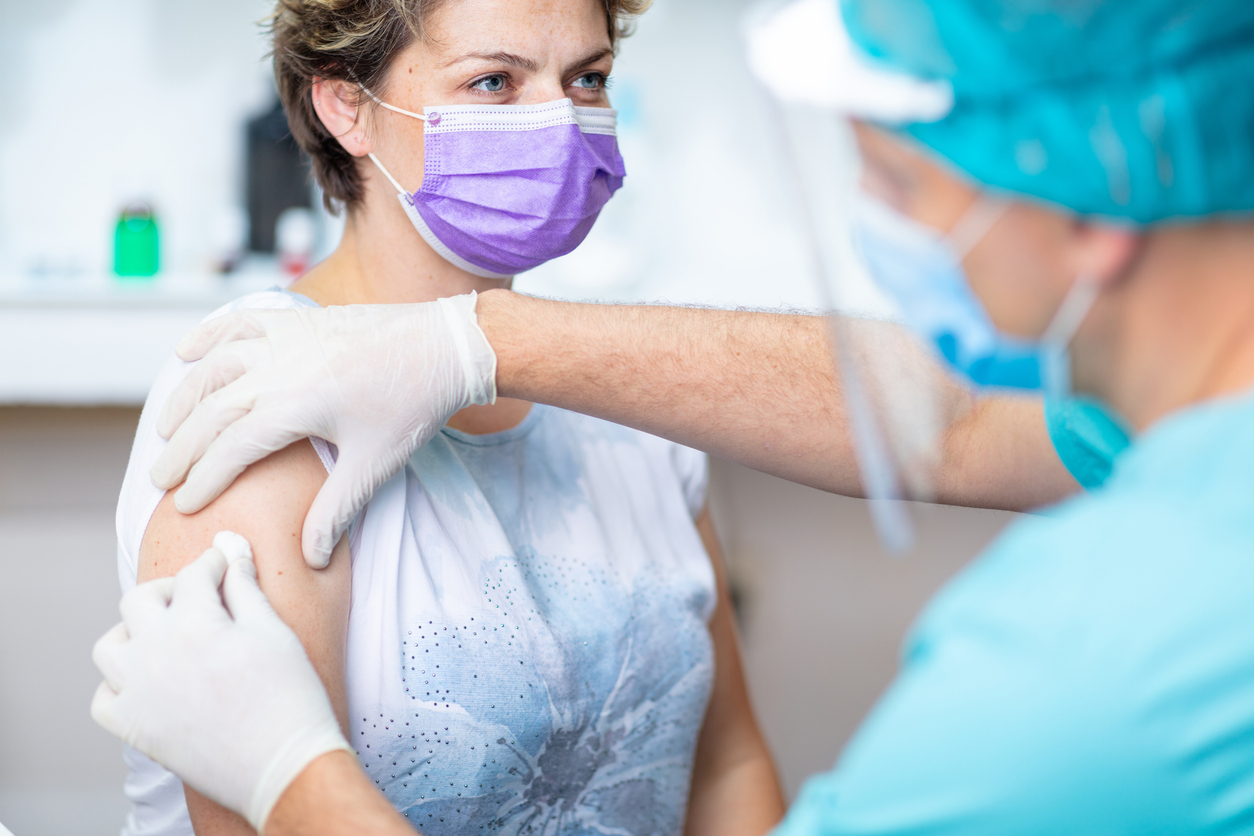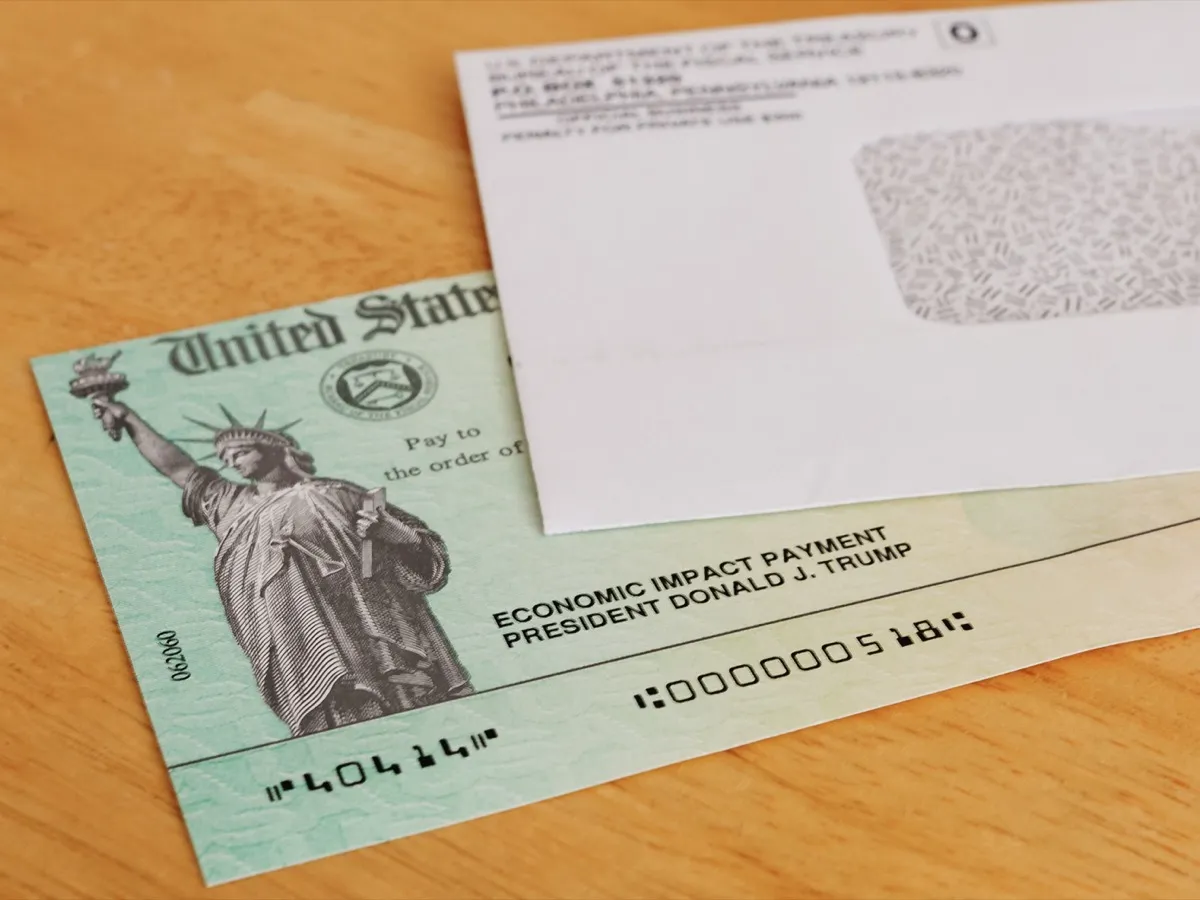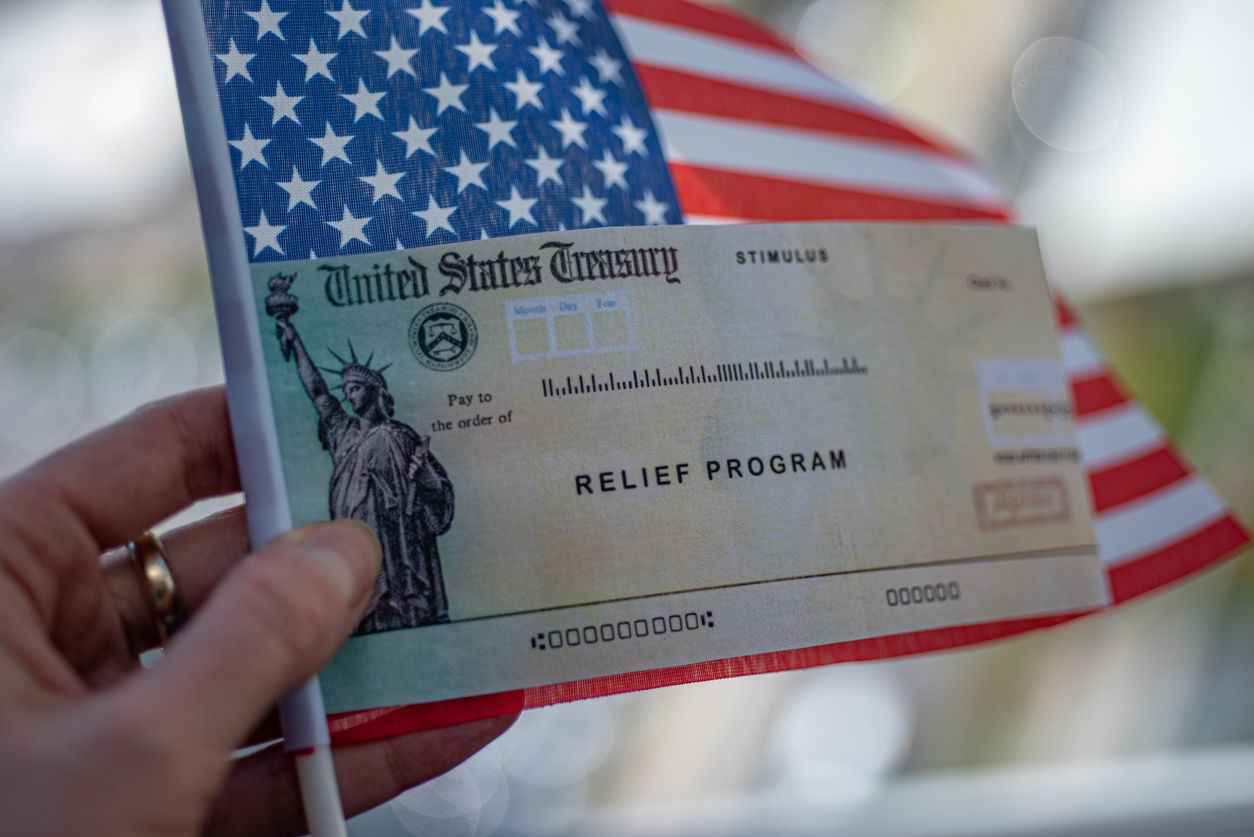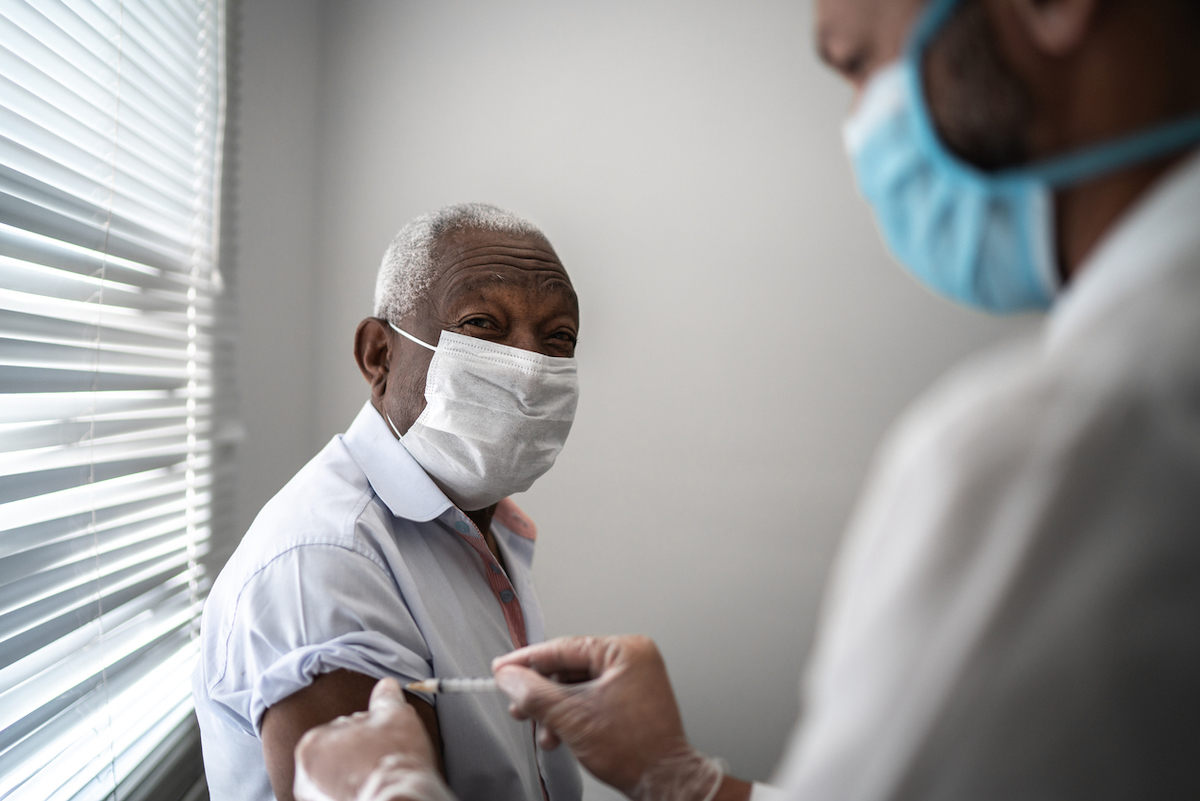The proposed condition for payment comes from John Delaney, an entrepreneur and former congressman from Maryland who also ran as a Democratic presidential candidate in the 2020 election, CNBC reports. And while Congress is still grappling over exactly how stimulus will play out, his idea would see a payout of $1,500—which is $200 more than the first round—to ensure people show up for their inoculations. Delaney feels his plan is a straightforward way to solve two major problems that are currently plaguing the U.S. Keep reading to find out what the full payment plan could entail, and for more on venues you should avoid for the time being, check out Almost All COVID Transmission Is Happening in These 5 Places, Doctor Says. Read the original article on Best Life. The thrust of Delaney’s argument rests on the fact that as it currently stands, many people are wary of taking a vaccine that some feel was hastily developed and released. A recent Gallup poll found that just 58 percent of Americans felt comfortable getting inoculated with the COVID-19 vaccine, which presents a hurdle to health officials who are looking to see more of the country sign on earlier. “The faster we get 75 percent of this country vaccinated, the faster we end COVID and the sooner everything returns to normal,” Delaney said in an interview with CNBC. “We have to create, in my judgment, an incentive for people to really accelerate their thinking about taking the vaccine.” Still, no one would be forced to get vaccinated for their second COVID stimulus check against their will. “If you’re still afraid of the vaccine and don’t want to take it, that’s your right,” Delaney explained. “You won’t participate in this program. But guess what? You’re going to benefit anyhow, because we’ll get the country to herd immunity faster, which benefits you. So I think everyone wins.” And for more on a surprising health issue that could be helping you during the pandemic, check out If You Have This Common Condition, You Might Be Safe From COVID. Delaney’s plan involves issuing anyone who has received a vaccination a specific number. After entering the figure along with their social security number into the new system, a check would then be cut and sent.ae0fcc31ae342fd3a1346ebb1f342fcb “It’s not like we don’t pull levers to get people vaccinated,” Delaney said. “We do that now,” referring to vaccination incentives that already exist, such as requirements for children to be vaccinated to attend school. While all current stimulus proposals are staggeringly expensive, Delaney argues that this would be the most effective use of funds that would solve two problems at once. “The faster we get 75 percent of this country vaccinated, the faster we end COVID and the sooner everything returns to normal, which means we don’t need any more programs,” Delaney told CNBC. Delaney also specified that the $1,500 amount was not set in stone, and that it could go down to as little as $1,000 and as high as $2,000. And even though no formal motions or proposals on Capitol Hill include a plan to make stimulus check payments contingent on getting vaccinated, Delaney has reached out to former congressional colleagues in an attempt to get it brought to the floor. And for more on how top health officials think the vaccine should roll out, check out The CDC Just Voted That These People Should Get the COVID Vaccine First. While medical professionals agree incentivizing vaccines would be good for the economy in the long run, it is also at odds with the medical community’s belief that the oldest and most vulnerable in the population should be the first to receive their shots, which could delay funding from reaching some people who desperately need it. “In some ways, it’s the reverse order for when you want to deliver stimulus checks for people,” Howard Gleckman, senior fellow at the Urban-Brookings Tax Policy Center, told CNBC. “It’s always nice to be able to kill two birds with one stone, but in this case, I think the two birds are flying off in different directions. It’s going to be really hard to make it work.” And for more COVID news, check out If You Have One of These Blood Types, You May Be Safe From COVID.
